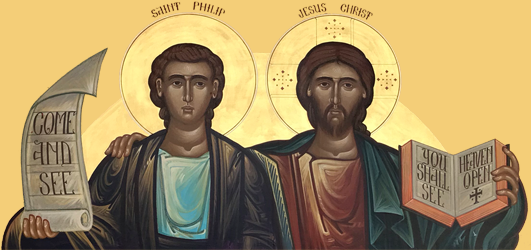Genesis 3:15
“I will put enmity between you and the woman, and between your seed and her seed. He shall bruise your head, and you shall be on guard for his heel.” (OSB)
Humanity’s fall, and God’s gracious and loving response to it (Gen 3:22), have created a new state of affairs for humanity: life from now on will be a struggle, in all dimensions and in all relationships. Man will struggle with the ground, man and woman will struggle with each other, woman will struggle with childbirth, humans will struggle internally and existentially with their own sin and death, in a place of exile and alienation from God (even though God is “not far from each of us,” Acts 17:27).
This struggle is at the same time a natural consequence of humanity’s misuse of its freedom—severing communion with God leads to death—and a function of God’s decree (St. Athanasius, On the Incarnation §6). Things must be this way so that humanity can ultimately be saved. God, in his mercy, gives us over to the consequences of our choices so as to bring about our repentance and healing (Rom 2:4).
Genesis 3:15—which has been called the “proto-evangelium,” that is, Scripture’s first articulation of the gospel—reveals that the struggle between good and evil to be played out in human history is a cosmic struggle. The serpent in Genesis 3 is a symbol of all that stands opposed to God and His Kingdom, an array of hostile spiritual forces that find historical expression in the likes of Pharaoh (cf. Isa 30:1-7), the king of Babylon, Antiochus Epiphanes, the emperor of Rome—all the oppressors and enslavers of God’s people. In the New Testament, the spiritual reality of these things is fully revealed as the triumvirate of “Sin, Death, and the Devil,” along with the “principalities and powers, and rulers in high places” (Eph 3:10; 6:12).
Genesis 3:15 anticipates the conquest & defeat of the serpent by the “Seed of the Woman.” The serpent is told that he does not and will not have the last word. He will be trampled down and crushed under the foot of the Redeemer (Num 24:17; Ps 109:5-6 [OSB]; Rom 16:20). This is the very struggle that is played out in Christ’s temptation in the wilderness. Just as in the Garden, the sly serpent quotes God’s words (Scripture) to trick Christ, the New Adam, into false worship:
"If you are the Son of God, throw yourself down; for it is written, 'He will command his angels concerning you,' and 'On their hands they will bear you up, so that you will not dash your foot against a stone.'" (Matt 4:6)
But as St. Gregory Nazianzen observes (Oration on Holy Baptism 10 [NPNF2 7.362), there is a rich irony here, in that the devil’s quotation of Psalm 90:11-12 leaves off just as the psalm predicts his very defeat:
You [Christ] shalt tread on the asp and basilisk: and thou shalt trample on the lion and dragon. (Psalm 90:13)
While the serpent’s defeat is assured, his bite, the “sting of death” (1 Cor 15:55), is still effective. The Cross of Christ removes death’s sting, just as the raised pole with the serpent in the wilderness brought healing to God’s people (Jn 3:14; Num 21:9), for Christ disarmed the principalities and powers when he nailed the “debt-sheet” of our sins on the Cross, taking away any basis for the devil to accuse us before God (Col 2:13-15) (cf. Joel C. Elowsky, ed., John 1-10 [ACCS: NT 4a; IVP, 2006], pp.123-5).
~ By Reader Justin Gohl

